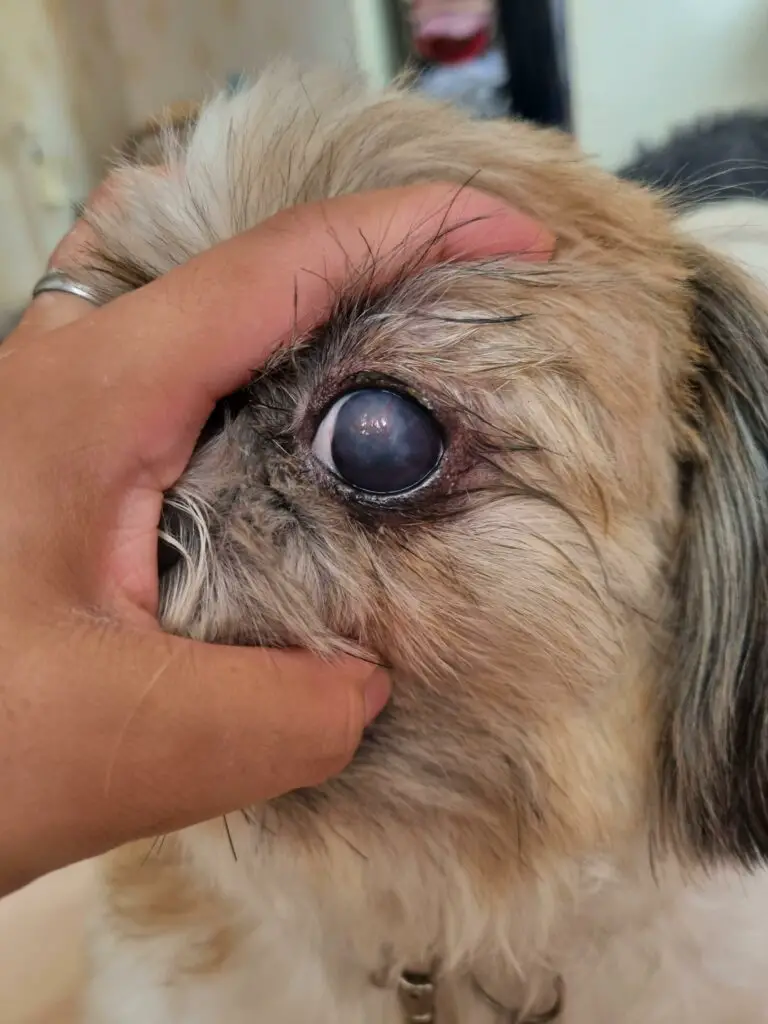
Shih Tzus are beloved companions known for their adorable appearance and affectionate nature. However, like all breeds, they are prone to certain health issues. Understanding these common problems and learning how to prevent them is crucial for ensuring that your Shih Tzu leads a happy and healthy life. This guide will explore some of the most common health issues in Shih Tzus and offer practical advice on prevention and care.
Respiratory Problems: Brachycephalic Syndrome
Understanding Brachycephalic Syndrome
Shih Tzus have a distinctive flat face, a feature that makes them particularly adorable. However, this physical trait also makes them prone to brachycephalic syndrome, a condition common in flat-faced breeds. This syndrome affects the dog’s airway, causing breathing difficulties, especially in hot weather or during physical exertion.
Prevention and Management
To prevent respiratory problems, ensure your Shih Tzu maintains a healthy weight, as obesity can exacerbate breathing difficulties. Avoid exposing your dog to extreme heat and humidity, and provide a cool, comfortable environment. Regular check-ups with your veterinarian can help monitor your dog’s respiratory health and address any issues promptly.

Dental Issues: Tooth Decay and Gum Disease
The Importance of Dental Health
Dental problems are common in Shih Tzus due to their small mouths and crowded teeth. Plaque and tartar build-up can lead to tooth decay and gum disease, causing pain and potential tooth loss if left untreated.
Prevention Strategies
Regular dental care is essential for preventing dental issues. Brush your Shih Tzu’s teeth daily with a dog-friendly toothpaste and provide dental chews to help reduce plaque. Regular veterinary dental check-ups and professional cleanings can also keep your dog’s teeth and gums healthy.
Eye Problems: Corneal Ulcers and Dry Eye
Vulnerability to Eye Issues

Shih Tzus’ prominent eyes make them susceptible to various eye problems, including corneal ulcers and dry eye (keratoconjunctivitis sicca). Corneal ulcers can result from trauma or infections, while dry eye occurs when the eyes do not produce enough tears, leading to irritation and potential damage.
Preventive Measures
To protect your Shih Tzu’s eyes, keep their face clean and free from irritants. Trim the hair around their eyes regularly to prevent it from causing irritation. Be vigilant for signs of eye problems, such as redness, excessive tearing, or pawing at the eyes, and seek veterinary care promptly if you notice any issues.
Skin Allergies and Infections
Common Skin Problems
Shih Tzus are prone to skin allergies and infections, often caused by environmental factors, food allergies, or parasites like fleas. Symptoms include itching, redness, and hair loss, which can lead to secondary infections if not treated promptly.

Prevention and Care
Regular grooming and bathing with hypoallergenic shampoos can help keep your Shih Tzu’s skin healthy. Maintain a clean living environment and use flea prevention treatments to reduce the risk of parasitic infections. If your dog shows signs of skin problems, consult your veterinarian to determine the cause and appropriate treatment.
Hip Dysplasia and Patellar Luxation
Joint Health Concerns
Although hip dysplasia is more common in larger breeds, Shih Tzus can also suffer from this condition, where the hip joint doesn’t fit properly into the hip socket. Patellar luxation, a condition where the kneecap dislocates, is also prevalent in small breeds like Shih Tzus.
Preventing Joint Issues
Maintaining a healthy weight through a balanced diet and regular exercise is crucial for preventing joint problems. Avoid activities that put excessive strain on your dog’s joints, and provide a comfortable, supportive bed. Regular veterinary check-ups can help detect early signs of joint issues and allow for timely intervention.
Ear Infections

Susceptibility to Ear Problems
Shih Tzus have floppy ears that can trap moisture and debris, making them prone to ear infections. Symptoms include scratching at the ears, head shaking, and a foul odor from the ears.
Ear Care and Prevention
Regularly check and clean your Shih Tzu’s ears with a vet-recommended ear cleaner to prevent infections. Keep the ears dry and avoid getting water in them during baths. If you notice any signs of an ear infection, seek veterinary care promptly.
Intervertebral Disc Disease (IVDD)
Spinal Health Risks
Shih Tzus are at risk for intervertebral disc disease (IVDD), a condition where the discs between the vertebrae deteriorate or herniate, causing pain and mobility issues. IVDD can lead to severe complications, including paralysis if not treated.
Prevention and Management
To prevent IVDD, avoid activities that strain your dog’s back, such as jumping from high surfaces. Use ramps or stairs to help your Shih Tzu get on and off furniture. Maintain a healthy weight to reduce the strain on their spine. If your dog shows signs of back pain or mobility issues, seek veterinary care immediately.
Heart Problems: Mitral Valve Disease

Understanding Heart Health
Mitral valve disease (MVD) is a common heart condition in Shih Tzus, where the mitral valve degenerates, leading to heart failure over time. Symptoms include coughing, difficulty breathing, and fatigue.
Heart Health Management
Regular veterinary check-ups are crucial for early detection of heart problems. Maintain a healthy diet and exercise routine for your Shih Tzu to support heart health. If your dog is diagnosed with MVD, your veterinarian can provide medications and lifestyle recommendations to manage the condition.
Hypothyroidism
Hormonal Imbalance
Hypothyroidism, a condition where the thyroid gland does not produce enough hormones, is relatively common in Shih Tzus. Symptoms include weight gain, lethargy, and skin issues.

Managing Hypothyroidism
If your Shih Tzu is diagnosed with hypothyroidism, your veterinarian will prescribe hormone replacement medication. Regular blood tests are necessary to monitor hormone levels and adjust the dosage as needed. A balanced diet and regular exercise can also help manage this condition.
Conclusion
Caring for a Shih Tzu involves being aware of their unique health needs and taking proactive steps to prevent common issues. Regular veterinary check-ups, a balanced diet, proper grooming, and a healthy lifestyle are key to keeping your Shih Tzu happy and healthy. By understanding and addressing these common health problems, you can ensure that your Shih Tzu enjoys a long, joyful life as your beloved companion.


